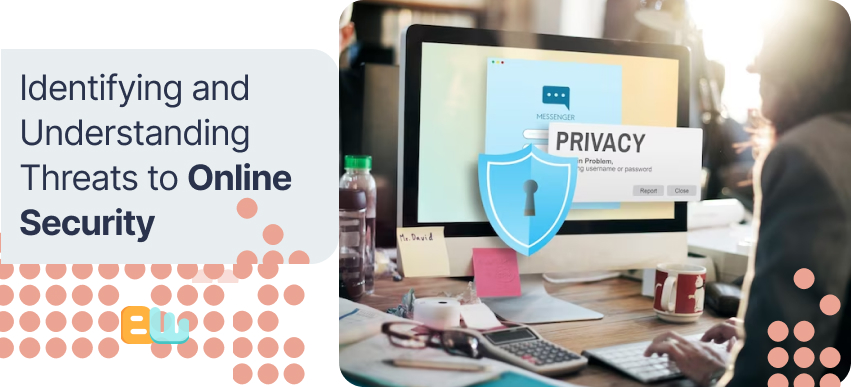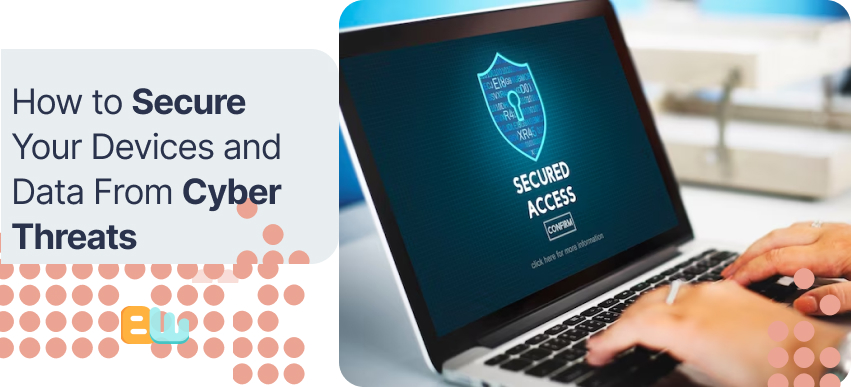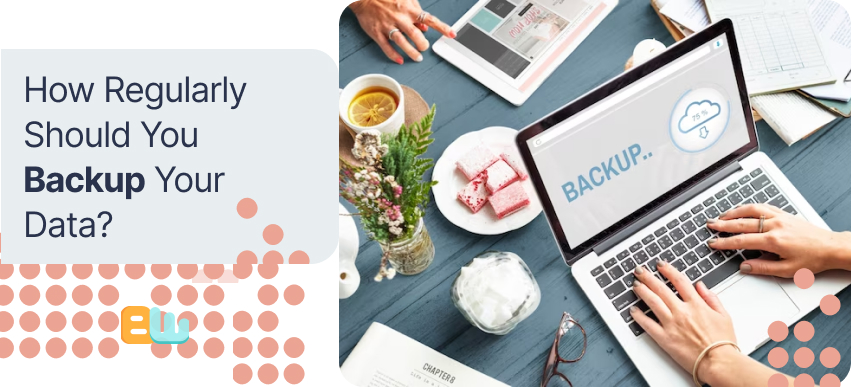
With the world becoming increasingly dependent on technology, securing our online presence has become more critical than ever. The internet is full of threats that can compromise our personal and financial information in seconds. To stay safe online, we must be aware of these risks and take necessary measures to protect ourselves. In this blog post, we will dive deep into online security by providing five essential tips that will help you secure your personal and financial information. We will cover everything from understanding the importance of online security to identifying and understanding threats, essential measures to protect personal information online, securing your devices and data from cyber threats, two-factor authentication, and backing up your data regularly. Read on to learn how to protect yourself from cybercrime’s dangers and have a safe online experience.
Understanding the Importance of Online Security
In today’s digital age, protecting ourselves from cyber threats and safeguarding our personal and financial information is crucial. Implementing effective security measures while browsing the internet is a good idea to ensure online safety. It is essential to be aware of the risks associated with sharing sensitive information online and understand the consequences of cybercrime on individuals and businesses. Taking proactive steps to protect our online identity and financial well-being is essential. By staying cautious and mindful of our online activities, we can navigate the internet safely and minimize the risks posed by hackers and malicious websites.
The Impact of Cybercrime on Personal and Financial Information
Cybercrime presents a significant threat to both personal and financial data. The consequences of cyber attacks often include identity theft and financial fraud. Cybercriminals exploit vulnerabilities in online systems to gain unauthorized access to sensitive information. The aftermath of a cyber attack can be devastating, leading to financial loss, emotional distress, and reputational damage. Protecting your personal and financial information is crucial to preventing cybercrime. By implementing good cybersecurity practices, such as using secure browsing techniques, safeguarding your online banking and social media profiles, and being cautious of phishing links, you can enhance your online safety and protect yourself from online attacks.
Identifying and Understanding Threats to Online Security

Awareness of various online threats is crucial to ensure a secure online experience. One prevalent form of cyber attack is phishing scams, where individuals are tricked into revealing personal information. It’s important to stay vigilant against malware and other malicious software that can infect devices. Using secure internet connections and being cautious of suspicious links or websites is essential. Additionally, understanding the importance of using trusted sources for downloading apps and software helps protect against online threats. By staying informed about threats to online security, individuals can better protect their personal and financial information.
Phishing Scams and How They Operate
Phishing scams involving fraudulent emails, messages, or websites are standard methods cybercriminals use to deceive individuals into sharing sensitive information. These scammers often impersonate reputable organizations and leverage trust to manipulate victims. To protect yourself, you must be cautious of unsolicited emails requesting personal information or urging immediate action. Always verify the legitimacy of emails or websites before providing any sensitive data. Stay informed about common phishing techniques to avoid falling victim to these scams. Being cautious and aware can safeguard your personal and financial information from phishing attacks.
Importance of Recognizing Email and Social Media Scams
Email and social media platforms are prime targets for cybercriminals, making it crucial to be vigilant. Be cautious when encountering suspicious emails that request personal or financial information. Social media scams often involve fake profiles or enticing offers designed to trick users into revealing sensitive data. Avoid clicking on unknown links or downloading files from untrusted sources to enhance your online safety. Keep your privacy settings updated on social media platforms. Recognizing and avoiding email and social media scams is essential for protecting your personal and financial information online.
Essential Measures to Protect Personal Information Online

To ensure a secure online experience, there are several essential measures you can take to protect your personal information. One of the most important steps is to use strong and unique passwords for all your online accounts. Additionally, enabling two-factor authentication provides an extra layer of security by requiring a secondary verification method. It’s also crucial to exercise caution when sharing personal information on public platforms or with unknown individuals. Monitoring your online accounts for suspicious activity is another vital practice in maintaining online safety. Lastly, consider using a password manager to securely store and manage your passwords for enhanced protection against cyber threats.
The Role of Strong Passwords in Online Security
Creating strong passwords is crucial for maintaining online security. A strong password should consist of a combination of letters, numbers, and special characters. Avoid using easily guessable information such as birthdays or names in your passwords. It is essential to have a unique password for each of your online accounts to avoid the risk of unauthorized access. Regularly updating your passwords adds an extra layer of protection. Consider using a password manager to generate and securely store complex passwords. These tips can enhance your online safety and protect your personal and financial information from potential cyber threats.
Ensuring Privacy: Keeping Personal Information to Yourself
There are several essential tips to remember regarding ensuring privacy and protecting personal information. First and foremost, it’s crucial to be mindful of the information you share online, especially on public platforms. Avoid posting personal details such as your full name, address, or phone number without considering the potential risks. Additionally, take the time to review the privacy settings on your social media accounts to limit the visibility of your personal information. It’s also important to be cautious when sharing personal information with trusted friends or family members and to consider the long-term implications before sharing sensitive information online.
How to Secure Your Devices and Data From Cyber Threats

Regularly updating your software and operating systems is crucial to patch security vulnerabilities. Installing reputable antivirus software to protect against malware and other threats is vital. A virtual private network (VPN) can secure your internet connection when accessing sensitive information. Be cautious of downloading apps or software from untrusted sources to avoid potential risks. Additionally, it’s recommended to backup your data regularly to minimize the impact of possible data loss. These steps can enhance your online safety and protect your devices and data from cyber threats.
Regular Software Updates: A Critical Component of Cyber Safety
Regularly updating your software is crucial for maintaining a secure online experience. These updates address security vulnerabilities and bugs, protecting your devices and data. Enabling automatic updates whenever possible is a good idea as it provides you with the latest security patches without manual intervention. Cybercriminals can exploit outdated software to gain unauthorized access to your devices or personal information. Make it a habit to regularly check for updates on all your devices, including computers, smartphones, and tablets. Stay informed about the importance of software updates in maintaining online security.
Secure Wi-Fi Connections: Avoiding Risks of Public Networks
When connecting to public Wi-Fi, it’s crucial to prioritize your online safety. One essential step is using a virtual private network (VPN) to secure your browsing session. Doing so can protect your data from potential hackers on public networks. Additionally, it’s essential to exercise caution and avoid suspicious links or websites that could potentially compromise your cybersecurity. By regularly updating your devices and apps, you can stay ahead of vulnerabilities and ensure a secure online experience. Consider using a password manager to create strong and unique passwords for your accounts for added protection.
Is Two-Factor Authentication Worth It?
Two-factor authentication provides an extra layer of security by requiring a second form of verification. It helps safeguard your accounts from unauthorized access, even if your password is compromised. Enabling this feature enhances online security and is recommended for important accounts like email and banking.
Why Two-Factor Authentication is a Must-have for Online Security
Two-factor authentication is an essential component of online security. It is an additional barrier against unauthorized access to your accounts, reducing the risk of identity theft and unauthorized transactions. Even if someone can obtain your password, they still need the second factor to gain access. In today’s increasing data breaches, having two-factor authentication is crucial for protecting your personal information. It prevents cybercriminals from accessing your accounts, even if they have your login credentials. With the ever-present threat of online attacks, implementing two-factor authentication is a good idea to ensure your online safety.
How Regularly Should You Backup Your Data?

Regularly backing up your data is crucial to protect against data loss caused by hardware failure, malware, or accidents. The frequency of backups depends on the importance and frequency of changes to your data. It is recommended to backup important files at least once weekly or whenever significant changes are made. Automated backup solutions can simplify the process and ensure consistent data backups. Additionally, consider keeping backups in multiple locations for added redundancy.
Conclusion
In conclusion, online security should be a top priority for everyone. With the increasing frequency of cybercrime and the potential risks to our personal and financial information, it is crucial to take essential measures to protect ourselves online. This includes being aware of the various threats, such as phishing and email/social media scams, implementing solid passwords, and keeping personal information private. Securing our devices and data through regular software updates and avoiding public Wi-Fi networks is also essential. Additionally, considering two-factor authentication and regularly backing up our data adds an extra layer of protection. Following these tips can significantly reduce the risk of falling victim to online threats and ensure a secure online experience.
